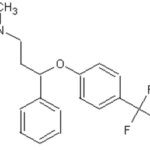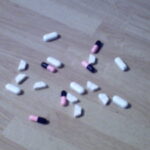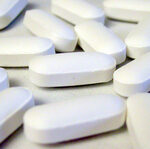Depression is a serious and potentially deadly illness that is one of America’s leading causes of disability. While it requires treatment, many patients have found that they are incompatible with mainstream treatment protocols, and reports of serious side-effects from selective serotonin re-uptake inhibitors (SSRIs) like Zoloft and Prozac are exceedingly common.
I have personally tried literally every SSRI on the market–as well as a slew of other antidepressants– and they have all, unanimously, worsened my depression. After spending my entire childhood, adolescence, and early adult hood undergoing seventeen painstaking years of conventional treatment, I arrived at the conclusion that the natural, do-it-yourself route is more beneficial to my mind and body than any degree of conventional treatment could ever be.
The herb kanna, or sceletium tortuosum, has proven to be tremendously beneficial at helping me to regain my psychological health, even after many years of suffering from severe clinical depression. Its effects, for me, seem to work in synergy with other natural supplements, like Sam-e and fish oil. The herb itself is very much a miracle plant, and there have been times that I’ve truly felt that it has saved my life. With the help of kanna, I have now been free of depression symptoms for over a year.
Considering how beneficial kanna has been to so many thousands of people (hundreds of whom have reported their experiences online), it is surprising that it still remains very little-known to herbalists and psychiatrists alike. The efficacy of kanna has been backed by an in-depth study of its constituent chemicals, which was published in the Journal of Ethnopharmacology in March 1996. A dozen years later, it still remains little-known owing to lack of FDA regulation, along with lack of coverage by mainstream media sources. It is almost unheard of among psychiatrists, even though it is chemically quite similar to conventional antidepressants, carries fewer side effects, and has never, to date, been linked to a severe reaction.
According to the studies published in the Journal of Ethnopharmacology, kanna, like its chemical cousins in the SSRI family of medications (Prozac, Zoloft, Luvox, Paxil, Celexa, and Lexapro) may act chemically on the brain by preventing the brain’s overactive re-uptake of serotonin, the “feel-good” neurotransmitter. When the imbalance is corrected, serotonin is given more time to act on the mind and body to enable the person to feel content.
After effectively using kanna to halt episodes of severe depression, I, as an herbalist, began recommending it to many of my clients. All of them, numbering no less than three dozen, came back to report that it had drastically improved their symptoms, and many also reported that it had helped other comorbid illnesses, such as obsessive-compulsive disorder and clinical anxiety.
Since that day, I have always used kanna as an intervention treatment during episodes of severe depression, in addition to taking a maintenance dose once per two weeks (this is what I found works best for me). Unlike pharmaceutical SSRI’s, kanna does not need to be taken every day, and there are no reports of any negative reactions to ending its use abruptly.
Another way that kanna differs from its pharmaceutical counterparts is that it has never been reportedly linked to causing, or worsening, severe depression. This might be a tremendous relief to the millions of depression-sufferers who are reluctant to try new medications because of bad experiences. SSRIs like Zoloft have been linked to thousands of suicides and hospitalizations, but this has been reported to occur following the use of kanna.
Based on anecdotal evidence from personal reports gathered via the internet, a typical reaction to kanna by a depression sufferer is to feel an immediate sense of relief and comfort. Within mere moments, this wonder-plant has caused many people to go from wanting to die to wondering what it was they were so upset about. Kanna relieves anxiety, stress, and tension, and might also be an effective treatment for obsessive-compulsive disorder.
In large doses, kanna provides a mildly euphoric feeling of stimulation, followed by a period of mild sedation. Extremely high doses might cause some sense of inebriation similar to the feeling caused by pharmaceutical psychotropic medications. However, kanna is not a recreational drug does not generally cause a feeling of being high, drunk, or noticeably intoxicated, and no published reports exist that link it to hallucination, psychosis, anxiety, or risky behavior.
No adverse reactions to kanna have been reported to date, but it is always important to exercise good judgment when trying a new medication of any kind (herbal or otherwise). Never take any new medication without first discussing it with your doctor. Until you know how kanna will effect you, it might be a good idea to avoid driving in the first several hours after taking it, just in case it causes you to feel inebriated or sleepy.
Although such effects have not yet been reported, I believe that, based on kanna’s chemical actions on the brain’s serotonin levels, it may be dangerous to use in conjunction with other serotinin-effective medications or supplements, such as SSRIs, MAOIs, antipsychotics, anticonvulsants, 5-HTP, L-tryptophan, or Saint John’s Wort. An overproduction of serotonin may cause serotonin poisoning, which has been known to be a potentially life-threatening reaction.
Kanna’s effect on pregnancy and lactation is unknown, although many herbalists feel that it is a better choice for many women who are pregnant or lactating if they are in need of medication and may react unpredictably to the use of conventional medications. Discuss it thoroughly with your obstetrician or midwife, as well as your psychiatrist and herbalist, before using kanna while pregnant or nursing.
I have found that the most effective and bioavailable form of kanna is in an extract form, as an alcohol-preserved tincture. Others who use kanna prefer tablets, capsules, or direct powders. None of these forms of kanna are right or wrong, and you may want to try experimenting with different forms to see what works best for you.
The proper route of treatment for your psychiatric illness is, of course, unique to your situation. Determining the best treatment options for you is something that you must undergo only with the guidance of a qualified psychiatrist or psychologist who can work in sync with your herbalist or natural health practitioner. This article is intended to supplement–not substitute–the care and advice provided by a qualified physician. You should not change your medications, self-diagnose, or self-treat under any circumstances, and should always check with your healthcare provider before taking any new medication, herbal or otherwise.



